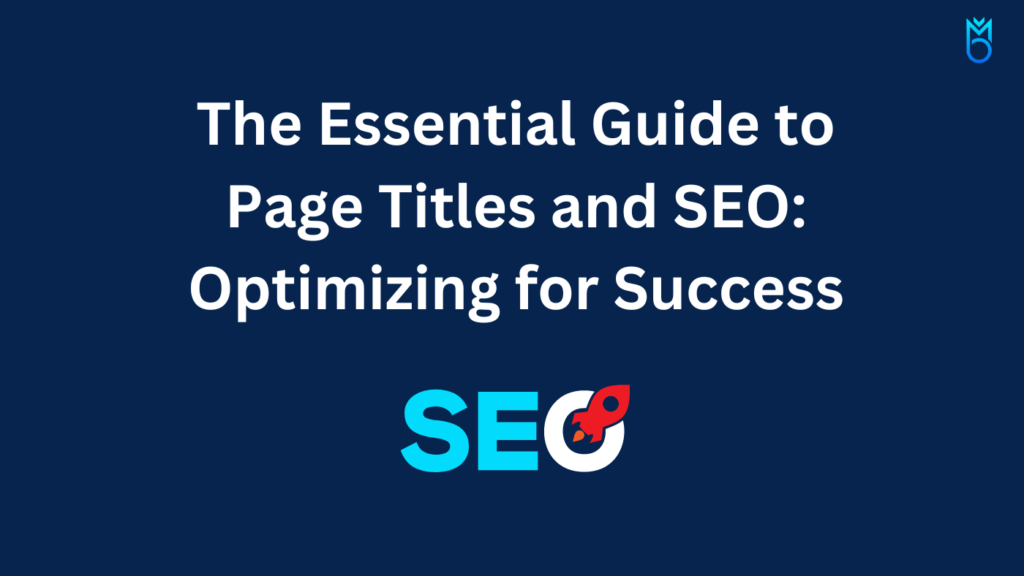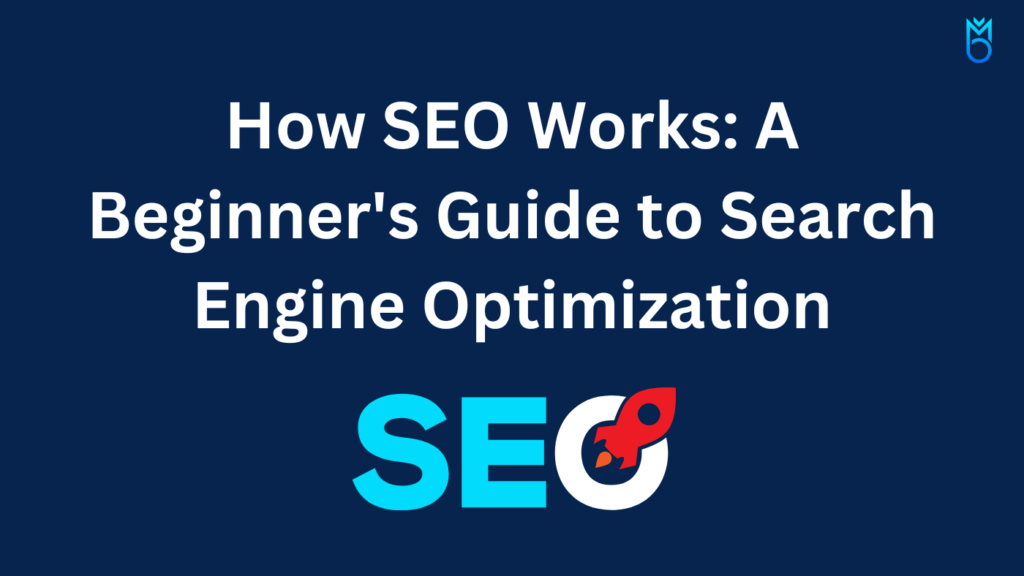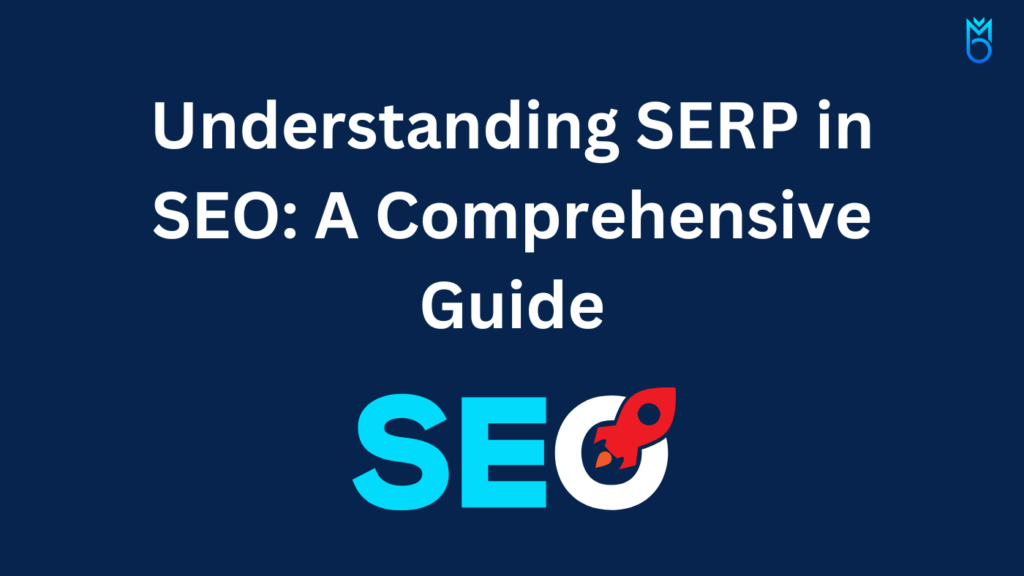Page titles are HTML elements that define web page names, crucial for SEO as they influence search rankings and attract users in search engine results pages (SERPs).
Page titles are crucial for search engine optimization (SEO) as they provide a concise summary of the content on a webpage. They play a significant role in helping search engines understand the relevance of a page to a user’s search query, making it essential to craft descriptive and keyword-rich titles to improve visibility and click-through rates.
Key Takeaway about Page Titles and SEO
- Direct Impact on SEO: Well-crafted page titles directly influence search engine rankings by incorporating relevant keywords and providing clear context about the page’s content.
- Crucial for User Engagement: Engaging page titles increase click-through rates from SERPs by effectively capturing user interest and setting accurate content expectations.
- Optimal Length Matters: Keeping page titles within 50-60 characters ensures they display correctly in search results without being truncated, maintaining clarity and impact.
- Uniqueness is Essential: Unique titles for each web page prevent confusion, help search engines understand site structure, and improve user experience.
- Incorporation of Primary Keywords: Strategically placing primary keywords towards the beginning of the title enhances visibility and relevance in search engine algorithms.
01:The Importance of Page Titles in SEO
A page title, or SEO title tag, is the HTML element that specifies the title of a web page. It’s displayed on the browser tab and is a headline in search engine results pages (SERPs). The role of the page title is twofold: it provides users with a clear indication of the page’s content and informs search engines what your page is about, aiding in indexing and ranking processes.

Google uses the title tag as a primary factor in understanding the content and context of a web page, making it one of the most crucial SEO elements. A well-crafted title can improve your page ranks, enhance your website’s SEO, and attract more clicks from potential visitors browsing search results.
02:Optimize Your Title with Keywords
Incorporating relevant keywords into your page title is foundational in SEO best practices. Start by selecting a primary keyword that accurately reflects the page’s content. This keyword should be placed towards the beginning of the title to signal its importance to search engines and users alike. However, avoiding keyword stuffing is vital; your title should remain natural and readable.
03:Write a Compelling and Unique Title
Every page on your website should have a unique title that clearly describes the page content. A reasonable title tag improves your site’s SEO and entices users to click on your page if they see it in search results. To write an SEO title that captures attention, focus on balancing informativeness and appeal. Use strong language that communicates the value or solution the page offers. Try Free AI Blog Title Generator.
04:Keep an Eye on the Length
SEO title length is another critical factor. Ideally, your title tag should be between 50 and 60 characters to ensure it displays correctly in search results without being cut off. Google Search Console is an excellent tool for monitoring your titles‘ appearance in SERPs.
05:Align Title Tag with H1 Tag
While your title tag appears in search results, the H1 tag serves as the main headline on the page. These elements should be aligned in terms of content, but it’s best practice to use a different title for your H1 for a more engaging user experience. This practice supports SEO and user engagement by providing clarity and avoiding redundancy.
06:Utilize SEO Tools and Resources
Tools like Yoast SEO guide optimize your title tags and provide real-time length and keyword usage feedback. Additionally, conducting an SEO audit through these tools can reveal insights into your titles’ performance and areas for improvement.
07:Incorporate Your Brand Name
For home pages or main landing pages, including your company name or brand name at the end of your title can boost brand recognition. However, it’s often best to prioritize keywords and compelling language over branding for other pages focused on specific content or offers.
08:Common Mistakes to Avoid
- Only write a title that reflects the content: Misleading titles can harm your website’s credibility and bounce rate.
- Avoid duplicating title tags: Each page should have a unique title to prevent confusion for users and search engines.
- Resist over-optimizing: While keywords are essential, don’t sacrifice readability for SEO. A natural-sounding title is always better.
What is a Page Title?
A page title, also known as a title tag, is an HTML element that specifies the title of a web page. It’s a crucial snippet of text that appears in the browser tab and as the clickable headline for a given result in search engine results pages (SERPs). The title tag is meant to accurately and concisely describe a page’s content.
Why Do Page Titles Matter?
Page titles matter for several reasons:
- SEO: They are a significant factor in search engine algorithms and can influence your website’s ranking in SERPs. A well-optimized page title helps search engines understand what the page is about.
- User Experience: For users, the page title is often the first thing they see in search results, which can determine whether they click on your link. A clear and relevant title sets the right expectations.
- Social Sharing: When a page is shared on social media, the page title often becomes the post’s headline, influencing engagement and clicks.
Where Do I Set My Page Title?
The page title is set within the <head> section of a web page’s HTML document using the <title> tag. For websites running on content management systems (CMS) like WordPress, Joomla, or Drupal, the page title can be set or edited in the CMS’s backend interface, often without needing to edit the HTML directly.
What is the Optimal Page Title?
The optimal page title should:
- Be concise yet descriptive (typically between 50-60 characters to ensure it displays correctly in search results without being truncated).
- Include relevant keywords towards the beginning to improve SEO while maintaining readability.
- Reflect the content of the page accurately to meet user expectations.
- Be unique to each page on your website to ensure search engines understand the site structure.
How Do I Measure If My Page Title Is Good?
Measuring the effectiveness of your page title involves looking at several metrics:
- Click-Through Rate (CTR): Review the CTR for your pages in Google Search Console. A higher CTR indicates a more compelling title.
- Search Rankings: Monitor where your pages rank for their target keywords. Improvements in rankings can signal a well-optimized title.
- Bounce Rate: Analyze bounce rates via an analytics tool like Google Analytics. A low bounce rate may suggest that your title sets accurate expectations about your page’s content.
Compelling page titles is an essential component of a successful SEO strategy. By optimizing your title tags with relevant keywords, writing unique and exciting titles, and adhering to best practices like monitoring SEO title length and aligning titles with content, you can significantly improve your website’s visibility in search engine results. Remember, a great page title boosts your rankings and entices users to visit your website, laying the groundwork for increased engagement and conversions. Through continuous learning and adapting your approach based on SEO audit findings, you’ll master writing titles that resonate with search engines and users alike.

Redoan Kawsar is a digital marketer and SEO expert dedicated to helping businesses thrive in the digital world. He is the founder and CEO of MentorsBoss.com and provides a variety of digital solutions, including social media management, website development, local SEO, niche site creation, and lead generation. With his expertise and team, he can enhance your online presence and achieve impactful results for your business.


